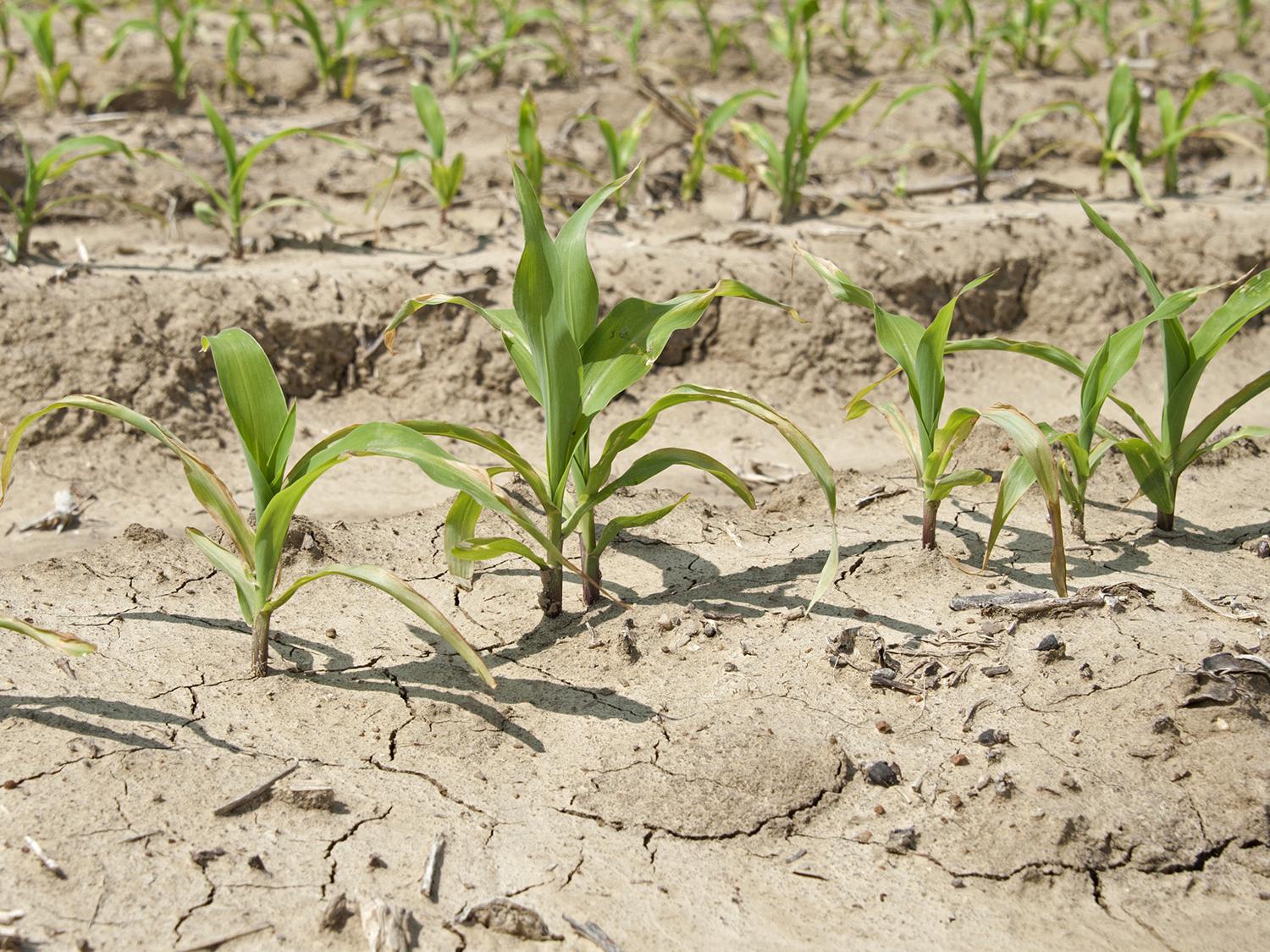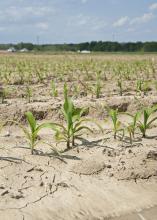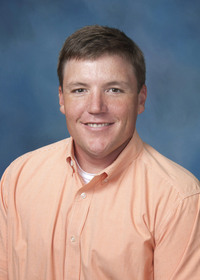Information Possibly Outdated
The information presented on this page was originally released on April 25, 2014. It may not be outdated, but please search our site for more current information. If you plan to quote or reference this information in a publication, please check with the Extension specialist or author before proceeding.
Mississippi corn faces another delayed start
MISSISSIPPI STATE -- Spring rains are delaying the state’s corn planting much as they did in 2013, but growers will not complain if the season ends with another record harvest like last year’s.
The U.S. Department of Agriculture estimated the crop was just 64 percent planted by April 20, putting it farther behind than it was at this time last year and well behind the five-year average of 87 percent planted. It takes five to 10 days after a rain before growers are able to resume planting in saturated soils, and frequent rains have kept most growers from planting as intended.
Erick Larson, corn specialist with the Mississippi State University Extension Service, said despite rain and cold weather, it’s not too late to keep planting.
“Research at Mississippi State University shows that corn grown with irrigation can maintain its optimal yield potential even when planted past May 1,” Larson said. “Just like with any other crop, the planting window doesn’t really close. With modern hybrids and irrigation, we can sustain optimal yields later than previously thought, and the yield reduction associated with later plantings is much less than perceived.”
Rain also has hindered weed control efforts in newly planted fields. Jason Bond, a Mississippi Agricultural and Forestry Experiment Station weed scientist at MSU’s Delta Research and Extension Center in Stoneville, said wet weather delays burn-down herbicide applications for winter annual weeds, allowing them to continue growing.
“By the time the weather cooperates to allow an herbicide application, winter annual weeds are often too large to control with a single application,” Bond said. “This either means fields will be planted into existing stands of partially controlled weeds or an additional burn-down herbicide treatment will be required. This extra treatment may not have been included in the farm budget.”
One way to control summer annual weeds is to plant early when weather allows.
“Summer annual weeds do not emerge until the temperatures are warm. Ideally, corn is up and growing vigorously by the time summer weeds emerge,” Bond said. “Growers miss this opportunity if planting is delayed.”
The saturated soils also threaten corn already in the ground.
“Corn is most vulnerable to saturated conditions when it has germinated but not emerged above the soil surface,” Larson said. “Some of the later planted corn may have more issues than that planted in early March.”
USDA reports that 42 percent of the planted corn had emerged by April 20, and this corn has faced some unseasonably low temperatures.
“Corn’s growing point is underground until it gets about a foot tall, largely protecting it from freeze and other factors that may cause topical burn,” Larson said. “The plant can readily withstand some burn damage as long as there is some green leaf left. Even if all the leaves are killed, the corn plant can generate new leaves if warm, dry weather promotes regrowth after a freeze.”
This year, Mississippi growers expect to plant 580,000 acres of corn, down from the 860,000 planted in 2013. Brian Williams, Extension agricultural economist, said price is a big part of the planned decrease.
“Nearby corn futures are trading for around $5.01 per bushel in late April,” Williams said. “For comparison, nearby corn futures were trading for close to $6.50 per bushel a year ago.”
Williams said corn prices were up in recent years because of short supplies that resulted from higher demand and drought. Prices are down this year largely due to a record 2013 harvest that replenished corn supplies.
“Although we aren’t expected to have as many acres this year, the harvest is still expected to be large as a result of improving yields,” he said.
News Story Contact
Your Extension Experts
Related News
Pages
Related Publications
Pages
- « first
- ‹ previous
- 1
- 2
- 3
- 4





